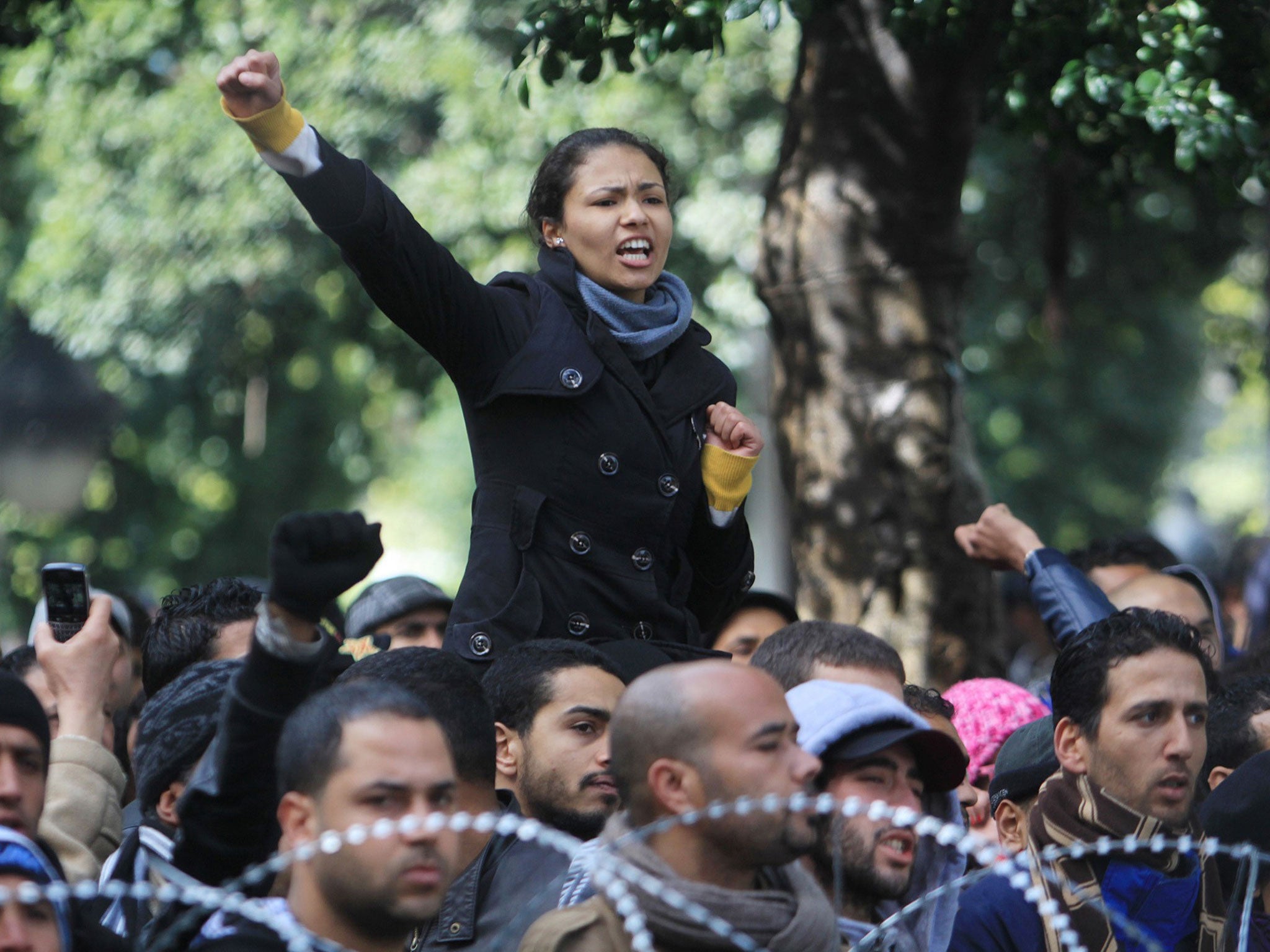Fresh crisis in Tunisia as PM's party turns against him
Ennahda scuppers substance of Hamadi Jebali's TV address to the nation and street protests ensue

Tunisia’s ruling party has rejected its prime minister’s attempt to dissolve the cabinet and replace it with technocrats, sending protesters back to the streets and plunging the country further into political crisis.
Prime Minister Hamadi Jebali had announced the move the previous evening in a televised address to the nation as he attempted to appease demonstrators enraged by the assassination of the prominent anti-government politician, Chokri Belaid. However, the Islamist Ennahda party to which he belongs turned on him, saying it had not been consulted.
The birthplace of the Arab Spring is facing the most serious challenge to its security since its revolution two years ago. After large scale protests a day earlier, downtown Tunis remained largely quiet on Thursday, though pockets of protesters clashed with police who responded with teargas.
The worst violence took place Gafsa, a historical oasis town and centre of Tunisia’s phosphate mining industry where there were full-scale riots. Mr Belaid’s party garners significant support in the town, which has been a flashpoint for unrest.
Before the assassination, the opposition and government had wrangled over creating a more representative cabinet, but with deep mistrust and resentment on both sides the negotiations had reached a deadlock. The announcement by the prime minister had been widely welcomed by opposition groups and briefly raised hopes that the Mr Belaid’s killing might spur cooperation.
However, confusion ensued after Abdelhamid Jelassi, Ennahda’s vice-president, said that the party would continue discussions on forming a new coalition government.
“The prime minister did not ask the opinion of his party,” he said. “We in Ennahda believe Tunisia needs a political government now.”
Monica Marks, a Tunisia analyst currently conducting doctoral research in the country, said that Mr Jelassi’s comments had thrown a spotlight on divisions within the party while its critics assume that it is “little more than white-knuckled clinging to power”.
“But we should also remember that this is a highly emotional time for the country, and that replacing key ministerial posts with unelected technocrats whenever protests erupt is not a good recipe for stability,” she added.
Mr Belaid was shot in his car outside his home in Tunis as he left for work on Wednesday morning, with the hooded assailant escaping on a motorbike with an accomplice. Three bullets were removed from Mr Belaid’s body, in addition to glass from the car window.
The killing has shaken Tunisia, which is unaccustomed to political violence. The last political assassination to take place there was the that of anti-colonialist Farhat Hached in 1952.
“I don’t think there was a Tunisian that didn’t cry for Chokri Belaid,” said Naila Ben Rhouma, who works at a call centre, as she watched a group of students protest on the steps of the city’s colonial-era municipal theatre. “It’s not about crying for Chokri Belaid but crying for Tunisia.”
There has been no official word on who may have carried out the attack. However, accusations by the family that of the involvement of Ennahda, or the shady paramilitary League for the Protection of the Revolution which Mr Belaid had accused of carrying out attacks on journalists and politicians at the party’s behest, have raised concerns over the investigation.
Amnesty International urged a full and transparent inquiry. “There is a need, today more than ever, for justice to be done and to be seen to be done,” it said.
Unrest is expected to continue today as Mr Belaid’s body is laid to rest in the southern Tunis suburb of Jebel Jelloud where he grew up and the country grinds to a halt after its powerful unions called for a strike.
Strikes have become increasingly common as the government grapples to address widespread discontentment over the country’s struggling economy – one of the triggers of its first revolution. However, Ennahda still garners support in a sizable slice of the country’s middle class.
Outside of a cafe on Tunis’ Rue Pierre Coubertin, Mohamed Ben Abdullah said the party was the best choice for Tunisia as they are not tainted by association with the past regime.
“They’re very clean, very clean, not like the others. They work for the country, not for themselves,” he said.
Assassinated: Chokri Belaid
Brought up in a poor southern suburb of Tunis Chokri Belaid was a secularist known for his popularist views, and for not pulling any punches. He became a prominent human rights lawyer and regularly defended those accused of political crimes under the 23-year authoritarian rule of Zine El Abidine Ben Ali.
His activities landed him behind bars, both under Ben Ali and his predecessor Habib Bourghiba.
Not one to fear putting his life at risk, he was also part of the legal team who defended former Iraqi dictator Saddam Hussein, whose lead defence lawyer was assassinated in 2006. Last year he represented the Tunisian television company prosecuted for corrupting public morals for screening the award-winning Iranian film Persepolis.
After the Tunisian revolution toppled Ben Ali two years ago Belaid turned his attention to politics.
Loveday Morris
Subscribe to Independent Premium to bookmark this article
Want to bookmark your favourite articles and stories to read or reference later? Start your Independent Premium subscription today.

Join our commenting forum
Join thought-provoking conversations, follow other Independent readers and see their replies